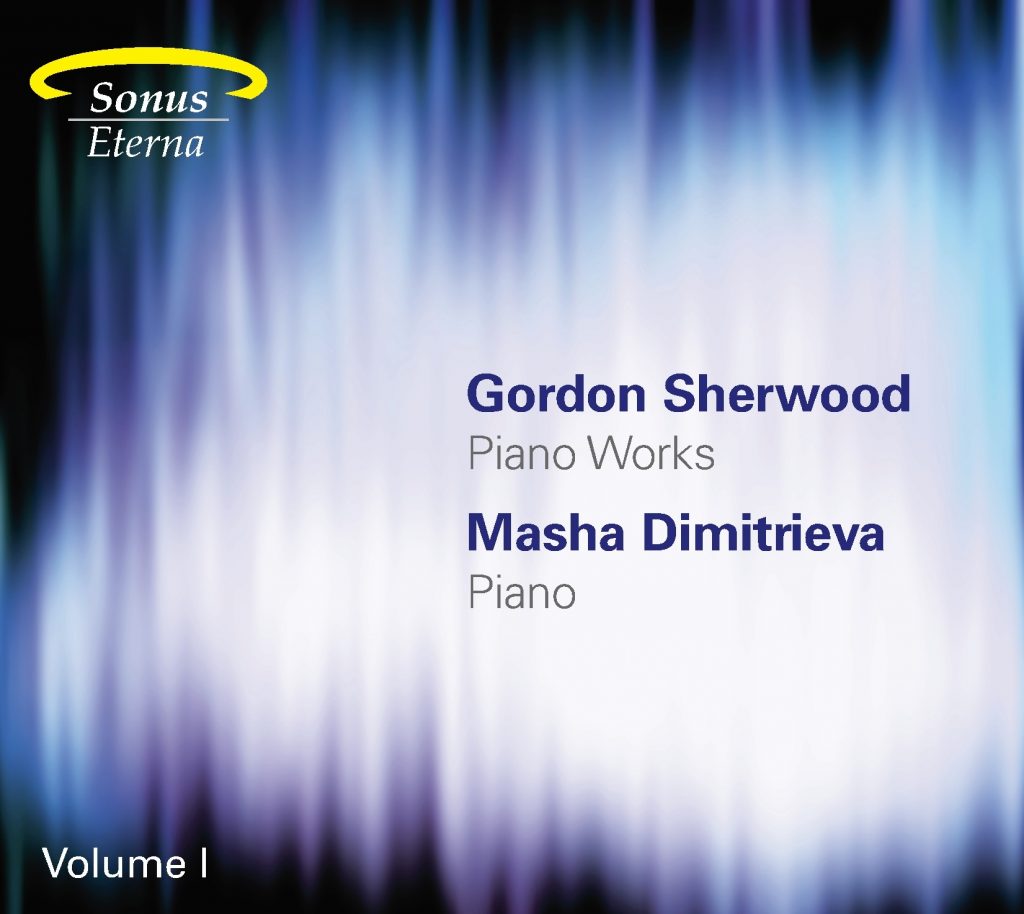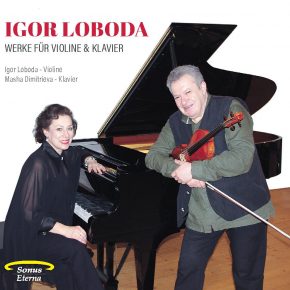Artistic quality: 10
Klangqualität: 7
Overall impression: 10
Review: 04.04.18
Sonus Eterna 37423
1 CD • 66min • 2017
Born in 1929, the American Gordon Sherwood has shied away from the established music business all his life. When the time came for the Mitropoulos-sponsored
Gershwin Prize winner it seemed to announce his breakthrough to national fame, and he left for study visits to Germany and Italy. He spent longer periods in the Middle East and Kenya until he made the decision to travel the world unattached. He consistently took it upon himself to make a living as a beggar for about two decades until he found a place to stay in Bavaria in 2005. Before his death in 2013, he was still able to experience how people began to discover his work. His oeuvre comprises 143 opus numbers, the majority of which are still an unearthed treasure. So one can only welcome the fact that Masha Dimitrieva has now begun to make Sherwood’s piano works accessible on CD.
Sherwood was a composer without ideological blinkers, who did not close his mind to any influence if it captivated him. He has seen much of the world, and gratefully absorbed suggestions from the cultures of the countries he has travelled through. Nor did he shy away from adopting a popular tone.
The four sonatinas op. 27 – inspired by French, Spanish, Arabic and Indian music – give a taste of the one, and the five pieces from the collection Boogie Canonicus, which also documents his love of Bach, give a taste of the other. In the Dance Suite op. 67, the composer offers in a concentrated manner what is generally a basic feature of his style: dance movement. The Sonata quasi fantasia op. 78 is based on themes that originate in the musicalisation of three women’s names. As different as the suggestions for the individual pieces may have been, the music seems astonishingly homogeneous. Sherwood’s compositions are fundamentally tonal, with an ear-catching love of altered chords and scales, and of connecting distant harmonies. This blends wonderfully with boogie-woogie and blues as well as with the music of distant lands, which is why these influences in Sherwood’s music ultimately do not appear as exoticisms, but as the different aspects of a personal style. They are similarly part of the
overall structure of his musical art as the Croatian and Hungarian influences in Haydn’s work. The basic mood of this music also makes me think of Haydn. It is filled with a serenity and balance not often encountered in the second half of the 20th century: the music of a man who has nothing to prove to anyone, and who knows exactly what he is striving for artistically and how to shape it with the sure hand he can always rely on. Incidentally, the compositions are no more extended than Haydn’s piano works: none of the sonatinas lasts longer than
six minutes, and at five and a half minutes, the middle movement of the Sonata quasi fantasia is the longest piece in the present collection.
As an interpreter of Sherwood’s music, Masha Dimitrieva can build on a close collaboration with the composer. She has not only seen him in
his last years of his life, but she is also the dedicatee of his piano concerto, which she recorded in 2000. In view of this, the stylistic confidence with which she now presents his solo pieces is not surprising. Her tempi are steady and fluid, her touch varied, she also has a good sense of the effect of the
Rubatos, of which she makes moderate use. The richly tonal music is in the best of hands with her, also in view of the recording quality.
The sound of this disc could be argued about. As a listener, one imagines oneself sitting directly next to the metallic timbred piano, in a small room with almost no reverberation. This doesn’t exactly sound like a concert hall, more like a domestic environment. I choose to see in this sound image not an oversight but a tribute to Sherwood’s silent protest against the establishment, but I cannot suppress final reservations about it. Accompanying the CD, the first episode of a three-part
series, by a text by Christoph Schlüren, which provides profound information about the composer’s life, work and aesthetics.
Norbert Florian Schuck [04 .04.2018]
Original article at “Klassik Heute”:
Gordon Sherwood (Sonus Eterna) – Klassik Heute (klassik-heute.com)










